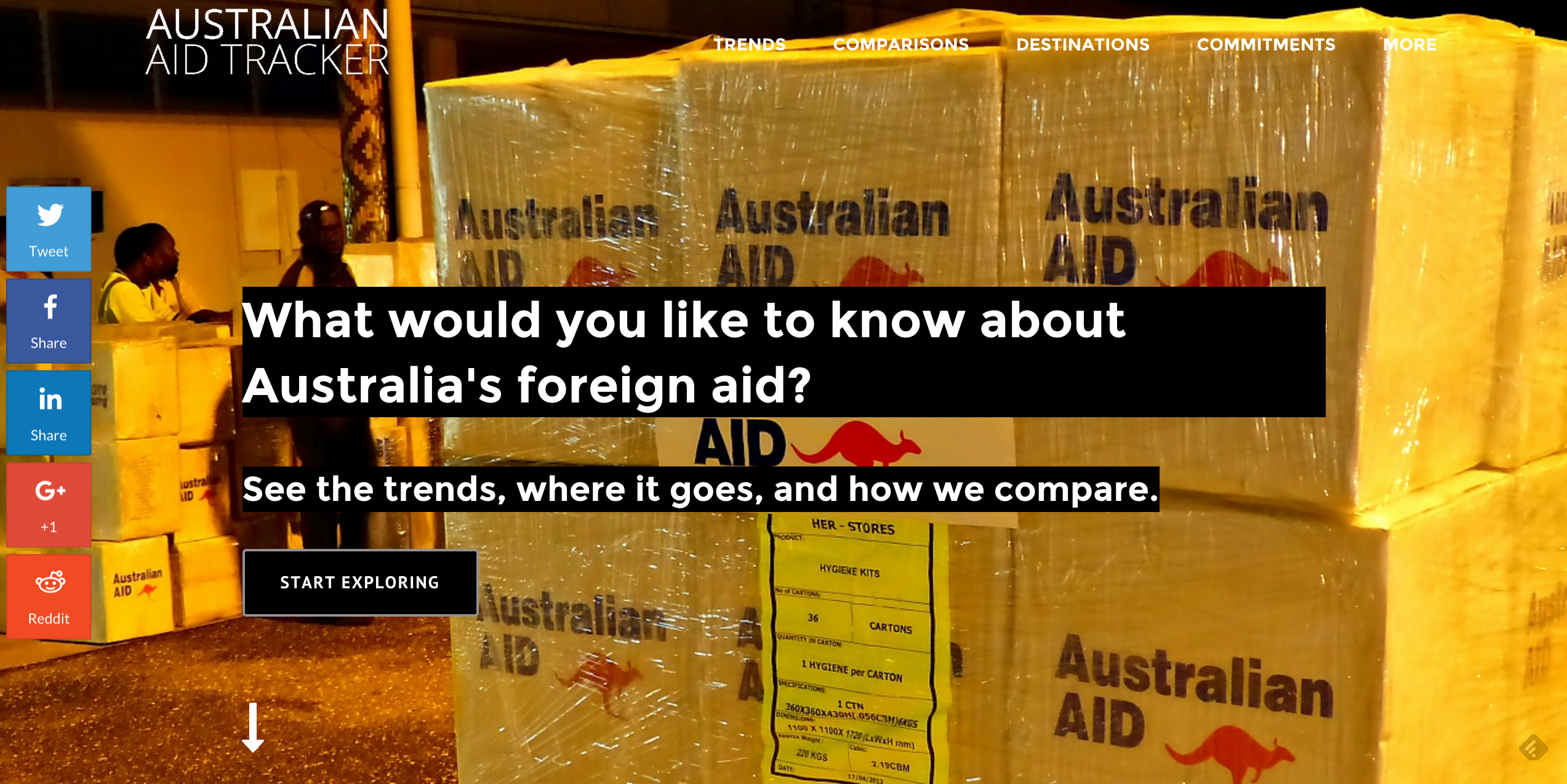
Introducing the Australian Aid Tracker
By Ashlee Betteridge
27 January 2016
Today we are pleased to launch our new website, Australian Aid Tracker.
The aid tracker draws on a range of data and Devpolicy analysis, and uses a variety of visualisation and charting tools to help bring the numbers on Australian aid to life.
It’s an independent, user-friendly and up-to-date look at Australian aid.
On the aid tracker, you can find the following.
- Trends: Australian aid over time, aid as a percentage of GNI, aid per capita, how much of the budget we spend on aid, and how much Australians donate to development NGOs.
- Comparisons: how Australia performs (now and in the past) against other aid donors in the OECD Development Assistance Committee.
- Destinations: where Australia’s aid goes.
- Commitments: the contributions Australia makes to important international aid organisations and funds like the Global Fund, Gavi and others.
- Sectors and partners: what issues Australian aid supports, how much we give to humanitarian causes, and what channels we use to deliver aid.
- Effectiveness: a guide to resources assessing the effectiveness of Australia’s aid.
- Aid 101: definitions and aid basics for those new to the topic.
We hope it will be a useful resource for many, whether you’re a journalist looking for a quick aid figure for a story; an advocate, policymaker or politician making a case for (or against) aid; or a member of the public interested in learning more.
Want to know how much foreign aid we give per Australian? It’s currently $170 a year – and it has been around the $150 mark ever since the 1970s, with the important exception of the previous “scale-up” decade.
Which country is the biggest recipient of Australian aid? It used to be PNG, then it was Indonesia, and it’s just become PNG again.
How does our generosity compare to that of other Western donors? Looking at our aid as a proportion of the size of our economy, 20 years ago we were the 9th most generous donor. We fell as low as 19th in 2005. According to the latest data (2014) we’re 13th.
These are just a few of the things you can discover by looking through the visualisations—there’s much more, and lots of interactive graphics, so you can explore for yourself and find out more about what interests you.
So visit the Aid Tracker website. We have also compiled a fun quiz to test your knowledge of Australian aid – do share it around. And there’s an infographic with some quick numbers here.
This will be an ongoing project, updated when new data comes in, and we are also hoping to expand the site going forward, so if you have any feedback, contact us at devpolicy@anu.edu.au.
The Aid Tracker was completed with gratefully acknowledged funding from the Gates Foundation and the Harold Mitchell Foundation.
Ashlee Betteridge is a Research Officer at the Development Policy Centre. She built the Aid Tracker website, in collaboration with Devpolicy Research Fellow Terence Wood.
Note: Aid tracker charts are not static, so may have been updated with new data since the publication of this post.
About the author/s
Ashlee Betteridge
Ashlee Betteridge was the Manager of the Development Policy Centre until April 2021. She was previously a Research Officer at the centre from 2013-2017. A former journalist, she holds a Master of Public Policy (Development Policy) from ANU and has development experience in Indonesia and Timor-Leste. She now has her own consultancy, Better Things Consulting, and works across several large projects with managing contractors.
